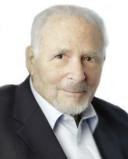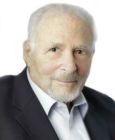Deception
Should We Want a President Who Can’t or Won’t Lie?
Having a lying president may not be as horrible as we think.
Posted August 23, 2016
Would it be desirable to have a president who always told the truth; who played with his cards face up? Would that serve the national interest? Only if all those the president dealt with, domestically and internationally, did the same, and they won’t. Otherwise our president would be at a marked disadvantage. But there are lies and lies; not all are the same, some a president should avoid, except in times of warfare; others are sanctioned whenever.
Traditionally, we distinguish between two kinds of lying: concealment lies (what traditionally has been called lies of omission) and falsification lies (what has been called lies of commission). In his book on diplomacy, Henry Kissinger said lies of omission are acceptable, expected in diplomatic engagements, but lies of commission are performed only in emergencies or when dealing with a declared enemy. No one, for example, condemned Jimmy Carter for lying when he declared we were not trying to rescue the hostages in Iran; instead it was because the mission failed. Nor was General Eisenhower condemned for his elaborate lies to convince the Nazis that we intended to land at Calais rather than Normandy.
In a cold war it is ambiguous. Repeated communication occurs, but neither side expects complete honesty about plans. Surprise has the advantage of a fait accompli, harder to undo once done, but it requires skill in concealment and sometimes also in falsifications. The danger occurs when leaders meet face-to-face, for communication through texts can be carefully checked and skillfully disguised. The top advisers to national leaders have been known to try to avoid such meetings, although there are examples in which they have resulted in important breakthroughs – between Gorbachev and Reagan, for example.
What about former president Nixon? His aides certainly lied, repeatedly, and some later went to jail for perjury. But the reason we condemn Nixon is because of the motive behind the lie, not for the lie itself. Nixon lied not to advance national but personal goals. Lies were told to give him an advantage not over foreign but domestic foes, and that broke the unspoken rules of the political game.
It is important to have a trusted spokesperson who never has falsified or concealed. Averill Harriman is said to have occupied such a role, and for that reason the Soviets at times insisted that he was the one they with whom they would communicate. He could have lied, but then we would have had no one who was trustworthy.
Except in times of warfare, the president should be that trustworthy person, who has never misled. That doesn’t mean that a president may not provide information that is untrue, but not deliberately so. I suspect that when the first George Bush promised not to raise taxes he was speaking truthfully. It was a broken promise; it would only have qualified as a lie if he had known when he said it that he would.
Today we are faced with candidates for president from each party who do not have a reputation for never lying, which is unsettling. Since it is suspected for both candidates, it may well mean that this will be an election in which truthfulness, trustworthiness does not become an issue. Remarkable!
The Micro Expression Training Tool (METT) and the Subtle Expression Training Tool (SETT) can be learned online, but more than that is necessary to detect lies from behavior. We offer a four day course to learn the necessary skills, in addition to METT and SETT.
Dr. Paul Ekman is a well known psychologist and co-discoverer of micro expressions. He was named one of the 100 most influential people in the world by TIME magazine in 2009. He has worked with many government agencies, domestic and abroad. Dr. Ekman has compiled over 40 years of his research to create comprehensive training tools to read the hidden emotions of those around you. To learn more, please visit: www.paulekman.com


